We Can't Wait: Student Empowerment Through Activism
J. Blaine Hudson, members of the Black Student Union, and supporters, demonstrating in front of Gardiner Hall in 1969
September 8, 2020
Institutions of higher learning are known as crucibles for social conflict and change. Although they are often at the forefront of progressive thought and action, they are also protectors of privilege and the status quo. The University of Louisville is no exception. Although educators often play a role in the fight for social change, historically, it’s the students who have created lasting change by forcing the hands of those in power.
A&S Student Activism, Then and Now
In 1969, student and civil rights activist J. Blaine Hudson, with fellow members of the newly founded Black Student Union and supporters, demonstrated in Gardiner Hall, the location of the Arts & Sciences Dean’s office, demanding improvements to the curriculum and increased resources and support for Black students. Hudson and others were arrested and tried under the newly enacted Kentucky Anti-Riot Act. In no small part because of his own and his peers’ tireless activism, Dr. Hudson would again occupy the Dean's Office in 2004, this time as Dean of the College. Until his death in 2013, he would remain in that role, pioneering and expanding programs related to social justice, diversity, and inclusion.
Fast forward to 2020, over 51 years from the time Dr. Hudson first occupied the Dean's Office, and black students and their allies are still called to direct action. This year in Louisville has been like no other in recent history. The nation's and the world's eyes are on Louisville, Kentucky, as thousands of people unite in peaceful protest against ongoing racial injustice and state-sanctioned violence. The recent brutal killing of Breonna Taylor and other unarmed Black people by police has led to rallying cries across the globe of "Say Her Name" and "No Justice, No Peace." These demands for change are being led by young people, and many of those young people are our students. Four such leaders are Maliya Homer, Nicole Sparling, Arii Lynton, and David Echeverria – all Martin Luther King Scholars at UofL. Through a moderated discussion, these four student scholars and activists discussed their experiences, their educations, what's getting them up in the morning, what keeping them up at night, and what they expect to change as a result of their work.
Student Panelists
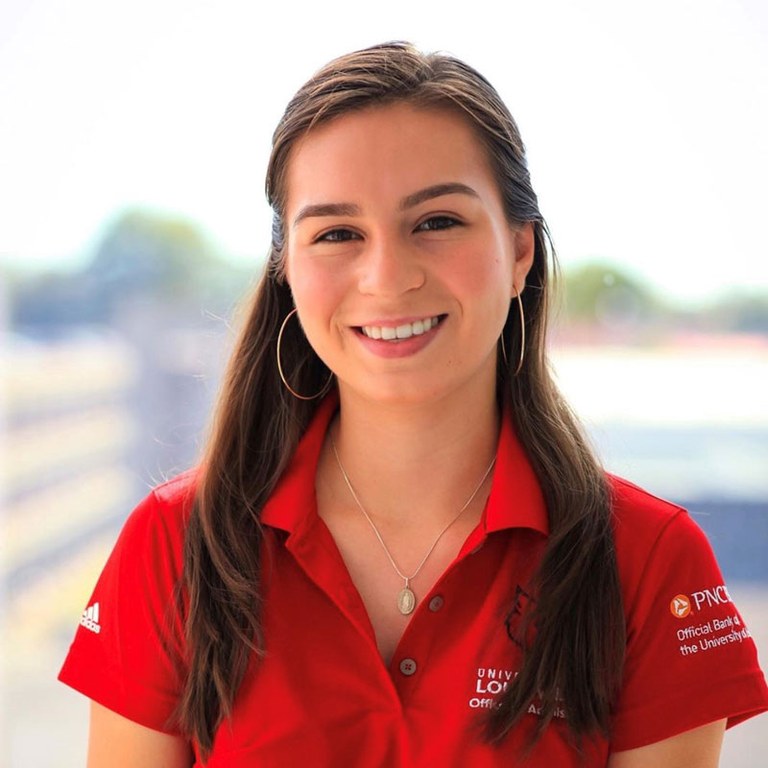 |
Nicole Sparling (she/her) Biology and Spanish major, Social Change and Political Peace Keeping Certificate minor Nicole Sparling is a senior MLK scholar at the University of Louisville. She is majoring in Spanish and Biology with a minor in Social Change and a Certificate of Political Peacekeeping. She is on the pre-med track and has worked in the Labs of Dr. Mervis (Psychology and Child Development) and Dr. Perlin (Genetics). She has been a volunteer medical interpreter for Kentucky Racing Health Services since August 2017. As a student activist she is a 4th year Diversity Student Ambassador for Admissions and focuses on recruiting Latinx Students to UofL and she is also the President of the Latinx Student Union. |
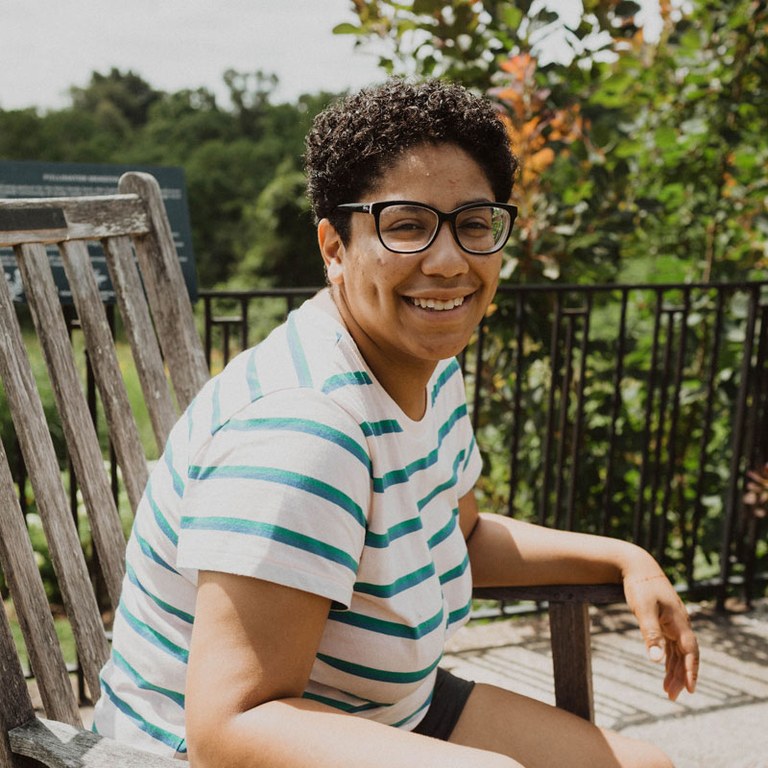 |
Arii Lynton-Smith (they/them) Arii Lynton-Smith is a senior pursuing a degree in Cultural Nonprofit Management (Liberal Studies). During their time at UofL, they have been able to spend a semester at Kent State University to take Nonprofit Studies courses. They participated in organizing the first Statewide BSU conference that was held at UofL in the spring of 2018. They also supported the development of the MLK Scholars RSO. And they worked at New Roots Inc. as an intern for 2 years. Currently they work as an Operations Assistant for Black Lives Matter Louisville. When they graduate they hope to pursue a master's degree in Geography with a focus on the food apartheid here in Louisville. |
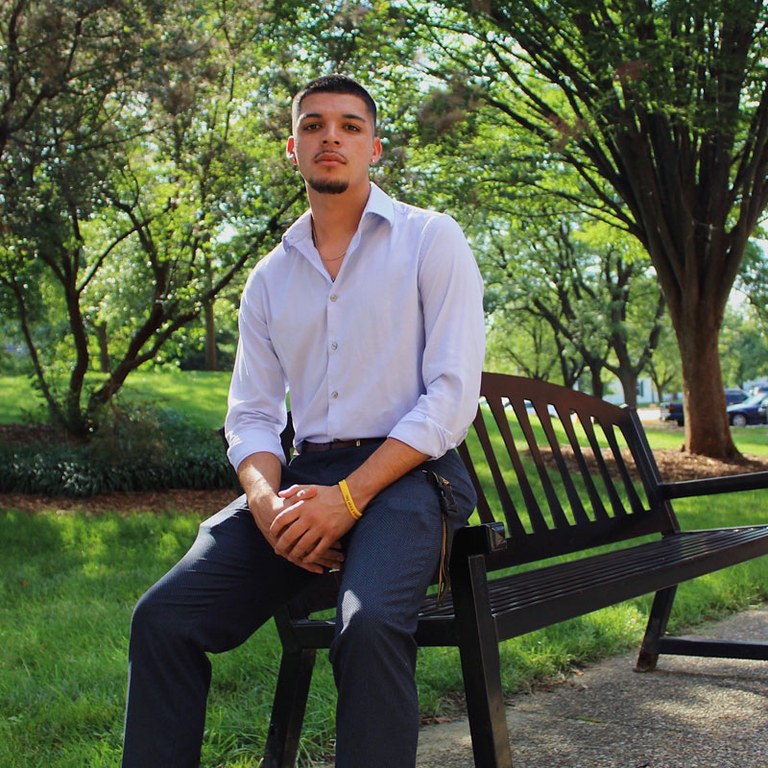 |
David Echeverria (he/his) David currently serves as the Vice President of Alpha Phi Alpha Fraternity and was President of the Latino Student Union for the 2019-2020 academic year. During the past summer, David worked as a community organizer with Louisville’s Black Lives Matter movement. His area of focus was engaging young people in community activism. |
See also: We Can't Wait: perspectives from our student panelists
Moderator
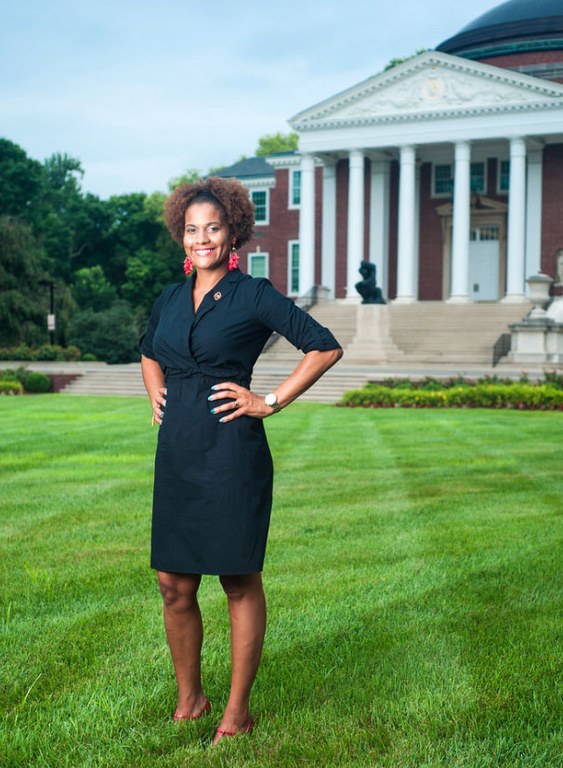 |
Cherie Dawson-Edwards, PhD Dr. Cherie Dawson-Edwards is the newly appointed Associate Dean of Diversity & Community Engagement of the College of Arts & Sciences, beginning October 1. She is an associate professor and chair of the Department of Criminal Justice and director of the Social Change minor. Dr. Dawson-Edwards holds a Ph.D. in Public Policy and Administration from Virginia Commonwealth University and a Master of Science in Justice Administration from UofL. Her research and teaching interests center on the intersection of public policy and criminal justice with a specific focus on schools and juvenile justice. Dr. Dawson-Edwards is a National Board Member for the American Civil Liberties Union (ACLU) and serves on the Executive Committee of American Civil Liberties Union of Kentucky (ACLU-KY). Dr. Dawson-Edwards is also a recipient of the 2016 College of Arts & Sciences Community Service Award. |
About the Martin Luther King Scholars Program
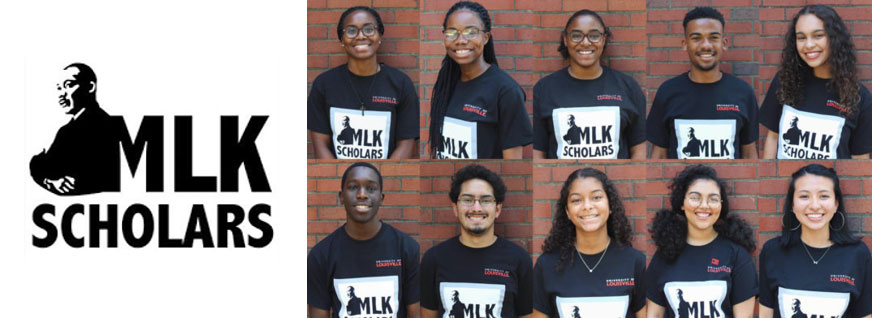
The Martin Luther King Scholars participate in an engaging leadership development program while enrolled at the University of Louisville. This mentored scholar program includes a scholarship, which is awarded annually to ten African American or Latino high school graduates from Kentucky or Southern Indiana. MLK Scholars participate in a program designed to develop critical thinking skills, engage in self exploration, and establish an appreciation for civic engagement. MLK Scholars live in an Honors Service Living Learning community throughout their first year, enroll in courses focused on social justice and peace studies, engage in experiential learning through community service initiatives, and, during the second year, participate in a civil rights immersion travel experience. The program includes full in-state tuition plus an $8,000 stipend to cover other university expenses. A minimum high school GPA of 3.5 and ACT score of 26 (SAT 1230) are required to apply.
